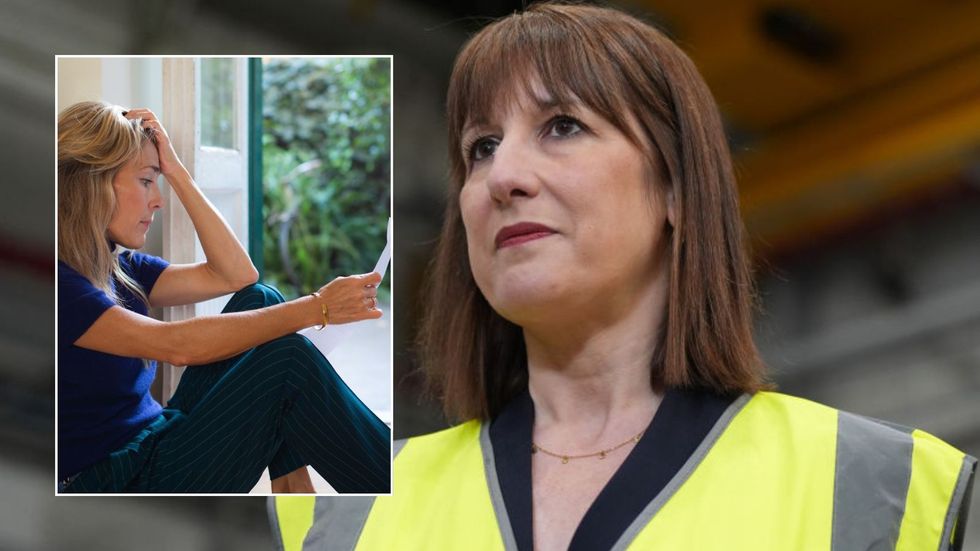The decision of consecutive Governments to freeze tax allowance thresholds has been criticsed by analysts for contributing to fiscal drag
Don't Miss
Most Read
Trending on GB News
Chancellor Rachel Reeves failed to scrap a controversial "stealth tax" during her Spring Statement in the House of Commons earlier this afternoon.
Since 2021, the Government has kept the income tax and National Insurance thresholds frozen with Reeves confirming these allowances will at the same level during last year's Autumn Budget.
Analysts note this results in fiscal drag with taxpayers being pulled into higher brackets due to the threshold freeze when either incomes or inflation rise.
During her statement, Reeves confirmed that the current freeze on tax thresholds until 2028 will continue/be extended until 2030 in a blow to taxpayers.

The much-hated stealth tax has been under fire
GETTY
Research from interactive investor found that the average earner making £35,000 a year could face a £416 higher tax bill due to fiscal drag.
This additional tax burden increases to £1,248 and £3,612 for those earning around £50,000 and £100,000, respectively.
These projections assume a 5.8 per cent increase in wages for the upcoming tax year (2025/26), based on the latest Office for National Statistics data.
Furthermore, they take into account wage growth continuing in line with the OBR's annual inflation forecast until 2030.
In his response to the Chancellor's Spring Statement, Shadow Minister Mel Stride accused Reeves of having "tanked the economy".
Despite tax rates not rising, Stride said this is "cold comfort" to taxpayers who are finding themselves pulled into higher brackets.
Britons are set to be "buckling" under taxes, which will be rising "to the highest tax burden... in the history of our country", the Shadow Minister claimed.
Ed Monk, an associate director at Fidelity International, broke down how fiscal drag is hurting household personal finances across Britain.
He explained: "The drag effect of such freezes is significant.
"As our analysis below shows, had the £50,270 higher rate threshold kept pace with rising wages over the past two and a half decades it would now be close to £75,000, and on track to be nearly £80,000 by 2028.
LATEST DEVELOPMENTS:
 Britons have seen the tax burden rise significantly in recent years GETTY
Britons have seen the tax burden rise significantly in recent years GETTY "To put it another way, someone earning twice the average wage in 2000 would have paid almost no higher-rate tax. Today, had their pay risen in line with average wages, 36 per cent of their income would fall into the 40 per cent rate."
Kevin Mountford, the co-founder and personal finance expert at Raisin UK, added: “It is welcome news that murmurs of an extension to the freeze on income tax thresholds have not rung true.
"For many, an increasing wage has already pushed them into a higher tax band. No matter your tax band, there are several actions people can take to make their money go further.
"It is critical individuals assess what they have available within their allowances - be that from their pensions, ISAs or even through gifting or allowances associated with your spouse - before the tax year ends, and plan for next year."









